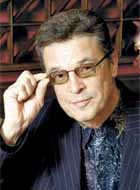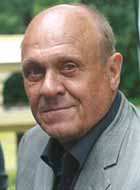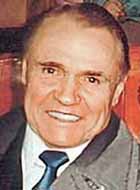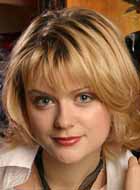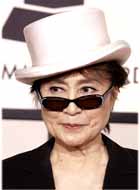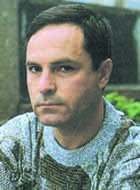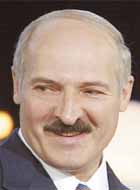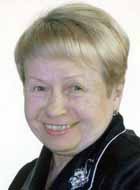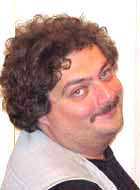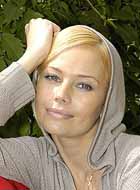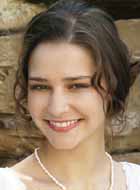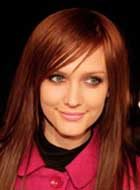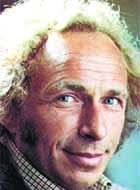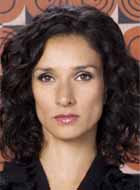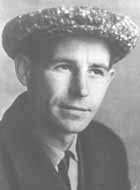The "Clubs" (Occupational Mindsets)
© Text: Dmitri Lytov, 2002—2006.
© Portraits: Yekaterina Filatova, "Personality in the Mirror of Socionics", 2001.
What Are the "Clubs"?
The "Clubs" (the term proposed by Gregory Reinin and Aushra Augusta), or "occupational mindsets" (the term proposed by Victor Gulenko) are groups of 4 sociotypes united by coincidence of the criteria "intuition—sensing" and "logic—ethic" (or "thinking—feeling", according to Jung). From my experience I can judge that the "club" is often easy to determine even in very superficial communication, because they manifest very well in people's conscious activities, in their preference of choosing certain methods of action or even occupations.
For the first time the "clubs" have been described not in socionics, but much earlier, in the classical work of Isabel B. Myers Gifts Differing. The adherents of MBTI call them Career Interest Groups, they are well studied and described in various articles and books. In socionics these groups have been studied and described by V.Gulenko, V.Meged and A.Ovcharov; they added something new—advices on their career guidance and on application of these groups in pedagogy. On the other hand, G.Reinin and Ye.Shepet'ko experimentally studied and described interaction of types within these groups.
"Clubs" and Career Guidance
The Clubs play an important role in career guidance and in pedagogy (the progress of mastering new knowledge by a pupil or a student depends on the orientation of the pedagogical process to certain Club).
It is interesting to notice that psychologists of other schools, i.e. those who never heard about socionics, MBTI or Jungian types at all, know anyway very well factors similar to these "Clubs". For example, in his recent book (2005) G.Reinin mentions a classification of Mind Types developed in 1985 by the Institute of Scientific Information of the Soviet Academy of Science; these are: conceptual, social, esthetical and technological ones.
However, the correlation between the Clubs and occupation choice is not rigid. Each occupation in fact represents complicated infrastructure where various skills and sub-specialties play their roles. For example, the backbone of army is formed by sensory-logical types, and thus everybody who serves in the army needs to master sensory and logical skills at least at the average level. At the same time, there is a lot of military specialties involving other Clubs as well: reconnaissance, ideological work, staff headquarters, higher military education, supply, military medicine etc. This all means that even the highest military rank does not necessarily mean that its bearer belongs to one of sensory-logical types (for example, in our opinion, general Colin Powell is an INTUITIVE-logical introvert).
Another example is science. Although intuitive-logical types more often than others have remarkable achievements in the field of scientific research, this is not yet the whole science; there is also enormous work of accumulation and humdrum verification of experimental data, administration of scientific activities and necessary supplies, teaching, preparation of articles and presentations, where representatives of other Clubs find application of their skills. Even the research process as such is not just a pure game of mind, and therefore even representatives of sensory-ethical types (e.g. Abram Ioffe, Zhores Alfyorov etc.) are known among famous scientists.
Communication within a "Club"
The socionic relationships within the Club include mirror, contrast and quasi-identity (and may also include identity when in practice a Club is represented by 4 types but more than 4 persons).
Even an incomplete Club (i.e. the one where not all 4 types are represented) is a good environment for improving professional skills, brainstorming, for practicing one's usual business. Most often Clubs emerge spontaneously: for example, intuitive-logical types are often to meet in research laboratories, sensory-logical types—in management or in army, sensory-ethical types—in trade or on the podium, intuitive-ethical—in literature or mass media. However, Clubs are inefficient when arising problems require manifestation of unusual qualities, struggle with competitors, adaptation to changing environment. When such problems arise within clubs, they can result in misunderstanding or confrontation, even when previously "club-mates" understood each other very well.
"Pragmatists" (sensory & logical)
This sort of people evaluate things from the standpoint of practical result, they dislike “visions” and “hollow conversations”. Their manner of communication at close distances is, as a rule, rather harsh (“I am a frank person!”), plain – unless the partner gains respect for himself. Their typical problem is the obscure understanding of their own feelings, which is especially unpleasant for women of these types. Being often unable of expressing their feelings adequately, they tend to be abrupt and suspicious for no reason. Their second problem is a habit to use “well-proved ways”, and they do not like to use new, unusual approaches, especially when these approaches have a form of rather an idea than a well-working technology. From this standpoint we can understand the paradox when a Pragmatist may be among those who get behind (he simply does not understand why he needs all these abstract rules and formulas), but after school he becomes quite successful. The problem is that the school focused on mechanic learning of theoretical knowledge cannot understand usefulness of his practical skills. The third problem is caused by their strive for concrete values – for this reason they strive for being “authoritative”, and often interpret advice from others (even constructive) as an infringement on their authority.
"Socials" (sensory & ethical)
|
Ethical-sensory extravert Victor Hugo, The Bonvivant |
Ethical-sensory introvert Dreiser, The Guardian |
Sensory-ethical extravert Caesar, The Politician |
Sensory-ethical introvert Dumas, The Mediator |
Human needs, life and the material world are things that interest them. In addition, they are the most sensuous of the 16 types, i.e. the most attentive to everything related to esthetic and attracting other people; they are well capable of presenting themselves and remark such manifestations of other people. Their realism and the negotiating skills often make them successful in life and attract representatives of the opposite sex. Their usual problem is subjectivism, lack of sober skepticism. They often overestimate their skill to make unofficial arrangements, influence people, instead of evaluating objective factors, independent of people and their relations. For example, if a teacher awards a bad mark to a pupil-social, a usual reaction of the latter would not be “I did not prepare myself for the lesson”, but rather “the teacher is prejudiced towards me”.
"Researchers" (intuitive & logical)
They own a well-developed analytical and inventive thinking, vivid imagination, even when their real occupations (e.g. a farm owner) is not relevant to abstract speculations. Their interests are various; often they even have knowledge that seems redundant to others, for the reason that it may be useful one day. They think a lot and often offer unusual, non-standard solutions. The Achilles’ heel of Researches (exactly what they must sacrifice for their perfect mental skills) is that they are often tactless in relations with people. They can find brilliant solutions, but get stuck at their implementation, because of awkwardness in handling the human factor, as well as of forgetting “those boring details”.
"Humanitarians" (intuitive & ethical)
These are people whose imagination is directed towards the human world and human relations. The developed skill that they would usually possess is their ability to make one enthusiastic or calm him down, to find a key to one’s soul and talents. Their common problem is rooted in their emotions and passions, which do not allow them to live quietly. Even the smallest problems (especially material ones) may trigger frequent mood swings, and make them feel depressed. Since their emotions and imagination often prevail over pragmatic issues, these are probably the least practical of the 16 types (maybe not in great affairs, but definitely in their everyday life): it is easier for them to persuade somebody to do something than to deal with routine chores themselves.
Books (this list includes only MBTI books; as you see,
in socionics these groups are described somewhat differently,
but all the socionic sources are in Russian)
- Isabel B. Myers. Gifts Differing.
- Jean M. Kummerow, Nancy D. Barger, Linda K. Kirby. Work Types. Warner Books, A Time Warner Co., 1997.
